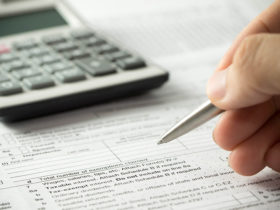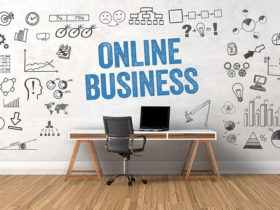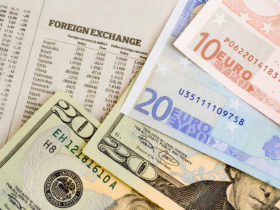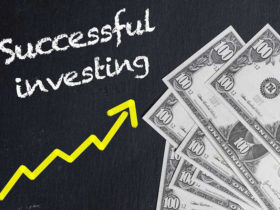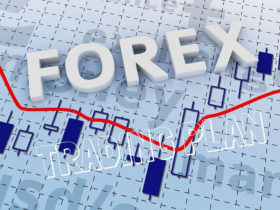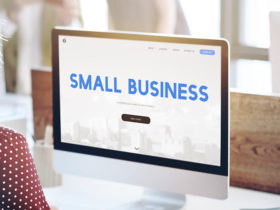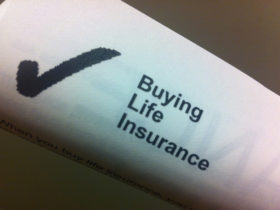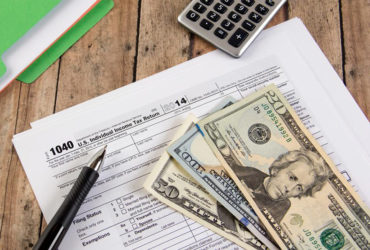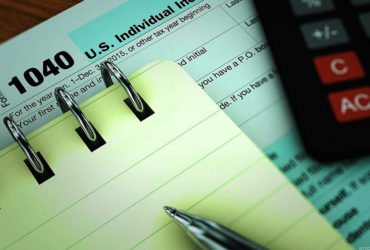Karlee: Hi everyone. Thanks for joining us today. We’re here with Vance and he participated in tax saving strategy. He just wants to share a little bit of his experience with you. Thank you very much Vance, for allowing me to do this case study with you. Would you mind starting off with a little bit about yourself?
Vance: Sure Karlee, thank you. My name is Vance and I live in Westlock, Alberta. I’m a high school Math teacher by training and living. I came upon this tax shelter program to help supplement my income.
K: Before you discovered this tax saving strategy what was your situation like before like did you see any problems at all? Or what was your life like before?
V: I wouldn’t say any specific problems. I think the biggest thing was at the end of the month you realized that there wasn’t as much left over to invest. I have some friends that were doing quite well with various investments and I thought I didn’t want to take on another job. I reached a point where I realized that there had to be a way of increasing both my financial IQ and knowledge. I also thought of taking advantage of the situation wherein the wealthy pay less in tax. This program gave me the opportunity to do that and pay down my mortgage.
K: So how exactly did you find out about this program?
V: A friend of mine brought me to a presentation and one of the sponsors was associated with this program and I talked to a very friendly gentleman and he informed me about it. He was very helpful and very friendly. I was, to be honest, quite skeptical when I first saw the program. The way that he educated me through the whole process was quite helpful and I felt very educated as I went through and it wasn’t a case of here-do-this situation. There were a lot of explanations all the way through.
K: What made you decide on this program apart from all the other ones out there?
V: One of the things that I really appreciated about this program, like I mentioned earlier the gentleman was very helpful and also the encouragement to do your due diligence. He told me not to take his words for it. Check in the tax shelter numbers. Go to the CRA website and see what they have in terms of registered charities. Everything was transparent and very above-board.
As I went through I had many questions. The more I learned about it, the more I liked the program. The transparency and the thorough explanation didn’t make me believe and understand at first, I was skeptical and I thought, Well this is too good to be true. The deeper and deeper I dug into this program, the more research I did…there were no big alarm bells that went off, that told me that I was wrong. I thought the people who developed this were a lot smarter than I claim to be. They really understood the tax situation and the program is an excellent way for people to participate and get some of that tax money back.
K: Sometimes, this program can be quite complicated but when you take it step-by-step its quite easy. The first step of this program is to apply for a loan. Do you remember how much that loan was?
V: I applied for a number of loans. I participated throughout the year. In the first year that I participated, I had in total for that year put in approximately $11,000 of what I paid for but the actual loan itself was closer to $50,000.
K: For clarification, the $11,000 you had put in was the pre-paid interest and the second was a charity payment, correct?
V: That is correct.
K: And how much was your actual loan again?
V: The loan itself was for $50,000.
K: What was the whole process for participating?
V: The process of the loan was quite simple. You apply for an amount that you want to donate to charity with the loan application. Normally, when you go to a bank or a car dealer they do credit checks for your financial background. I’m not saying that it’s not right; the problem is it is fairly slow.
Participating in this process is quite simple because you agree to certain terms of loans and pay the pre-paid interest upfront. I went to a bank and borrowed some money and I gave them $2,000 ahead of time. What these people do is that they simplify the process. They’re very above-board with the rates. You can see the rates throughout the year. The application process was quite simple; you borrow money and donate the medicine to charity. You can actually donate a lot more. Making the loan has enabled me to maximize my charitable efforts.
K: Apart from the prepaid interest, do you have to pay any of it back? How does that work?
V: No, the prepaid interest was for a four-year term. I’ve basically provided them an amount upfront other than that four-year term money that I gave them. They set that money aside and basically make monthly payments on my behalf. When its time to repay the loan there’s still an amount of money left from the prepaid interest out of that four years. With the remaining amount they purchase medicines overseas at a substantial discount compared to what we pay for in Canada. They pay the donation in kind. There was no follow-up donation; there were no extra or hidden costs or processing fees. It is a very simple bank transaction .There was the loan, I provided the interest upfront and then the transaction proceeds as planned.
K: Just to clarify again, how much money did you put in yourself?
V: Out of the pocket was $11,000.
K: With that $11,000 of prepaid interest, you applied for the loan of $50,000. They purchased the HIV medical unit, donated them to a registered Canadian charity but the donations received from that charity was the total amount of the loan you’ve made. In your province in Alberta, what is the tax credit that you received for charitable donations?
V: The tax credit in Alberta is 50% so that $50,000 donations that I’ve made for the medicines that I donated, resulted in a tax credit. It was actually a tax reduction, it was not a tax deduction like an RRSP where they subtract from your gross income and lessen your tax. This tax credit came off at the end so basically; it saved me $25,000 in taxes.
K: So you mean you got a cheque back of your tax money back from CRA of $25,000?
V: That is correct. It was actually more than $25,000 because we did have other tax benefits throughout the year, like RRSP’s and other deductions here and there. It was a happy day when that cheque came into the mail.
K: How much of all of the process did you actually have to do yourself?
V: Personally, the process was not difficult. To be honest, it was easier than getting a loan at a bank. There were no credit checks. So basically its a matter of filling out an application, writing two cheques and everything else takes care of itself. The program people were very supportive with any questions that I had any supporting documents that were required. Basically, it’s just one transaction it probably took me about half an hour to do the paperwork and get all my explanations. I felt quite confident as I knew what was going on and what the process would be.
K: Normally, when people hear the words, ‘Save Taxes’, they immediately get frightened that the CRA would come after them and audit them. What were your contact with the CRA and your experiences with them? Can you share with us a little bit about that?
V: Absolutely. I can associate with that fear. I thought up to this point, that the CRA was like the big bad accountant that was going to tear apart my shoebox full of receipts and deny all kinds of claims and so on. But the more I’ve understood about this program and understood the tax process, the less scared I have become. There was a follow up audit process which came about 18months after I got my cheque.
The entire process after I filed my return, made my donations, there was still a little bit of doubt at the back of my mind, ‘This is not going to work. This can’t possibly happen.’ Then when I got the cheque for $29,000, I was quite happy. But you have to keep in mind that the CRA doesn’t exactly think ‘Well just let this slide through – no questions asked.’ They have their jobs to do and I think they’re mandated, in my personal opinion, is to collect as much money from Canadians as they can. So about 18months later I received an audit questionnaire pertaining to my participation in the tax shelter. It has nothing to do with my term or anything like that; they were just pertaining to this donation. They wanted more information and it was a series of questions. It was a fairly thorough questionnaire but I was quite prepared to answer it, I felt very confident with my answers and the program helped me with that. It wasn’t the kind of ‘tear-apart-your-finances’ audit that Ive expected. I think, for the most part, in my own opinion, that the program works hand in hand with the CRA with their framework and rules and they were just maximizing the tax return result from them.
K: I know exactly. It completely makes sense when you referred to realize like its your legal right to save as much income tax as possible. You open your mind to see things from this other side of the story and not just the CRA side of the story. Very true.
V: Exactly. Well one of the things that I kind of discovered with all this was that the word ‘audit’ is a negative connotation and quite powerful especially to the CRA when in fact, Ive been audited quite a few times without even knowing it. In the past I would think I’m getting for example, $1500 refund and then I only get $1200. Well, I’m still pretty happy that I got a refund with the missing $300. They audited my return and decided to give me that lesser amount of money where if I really knew my rights I could actually disagree with them and say "No, I deserve that missing portion." I think as Canadians we don’t really realize how much power we have as separate citizens.
K: Exactly. Sounds like you’re quite familiar with this program. How many years exactly have you been participating?
V: Currently, this is my third year of participation and I plan to participate for many more.
K: Over the past 3 years and including that you still have to get your tax paid back in total, how much was that in total that have received?
V: Its been my entire income tax portion the first year I participated in. I received $24,000 back. The second year, $29,000 back and this year I anticipate with our entire family probably around close to $20,000 mark.
K: Of all the extra tax money that you’ve received, what has this allowed you to do?
V: The temptation is to go and buy lots of toys and consider it found money but I think the prudent thing that we’ve been able to do was pay down our mortgage we’ve started to build an investment portfolio. We’ve started to do some investment project in Arizona looking at diversifying into things like precious metals.
The nice thing was, with programs like this, you start talking to people about finances and about their financial IQ and what they understand, you start getting more information. We don’t invest in everything that we get but the idea is that now, were using this refund money to basically bankroll and finance our investments. And now that money is starting to grow and is a fair large chunk that were investing so it grows a lot faster than a few $100 a month. So we use that money as our investment nest egg.
K: Were there any other benefits that you’ve received aside from getting your tax money back and investing on a business?
V: In terms of other benefits, I would say a lot of them are peace of mind. For the first year, there was a bit of concern on what was going to happen, if I am going to be audited and they would come after me and take on my stuff. But once you’ve realized that those fears were irrational once you’ve recognized your rights and you understand where you are as a tax holder, you do get a lot of peace of mind. Now, Ive invested a lot of that money and its starting to grow for me. Even in just three years I already saw some of the benefits where its starting to compound interest in real estate and so on. You’ll start to see that turn-around. The concept of understanding of what my rights actually are has been huge for me. I don’t feel that negative connotation anymore.
I’ve had that conversation with accountants, auditors and everything is very positive now, I’m not worried or scared of the tax man. Knowing that I have a bit of an investment to fall back on, I think this has given me some confidence and I don’t worry about money anymore. Like you say ‘I ran out of money before I ran out of the month’. Those stresses are gone.
The other tangible benefit is helping people in Africa and that has been a great positive for me. The African people truly benefited from this. That’s a huge benefit and its something that gives you a lot of peace of mind. It’s a win-win situation. I’m benefitting financially and starting to build my investment portfolio at the same time I’m also helping a tremendous amount of people who honestly, I probably wouldn’t even be aware of before. Not that you don’t recognize these problems since you could imagine them as far away, half-way across the world. The need is still there. And that’s one thing that I definitely feel good about.
K: That’s such a wonderful story and you’re right. It is a win-win situation for everyone. It makes you feel good knowing that you’re finally able to donate as much as you want to if you’re a millionaire. One last quick question, what advice can you give for anybody who wants his tax money back?
V: The same advice that I received; don’t take my word for it. Check in the program yourself. Ask some questions. Go to the CRA website and check the registered charities. Its a real tangible program its not imaginary or just a paper shuffle, there are actual benefits. Educate yourself and know that there are a lot of people that are doing this like people who are successful in businesses or have a lot of money. Most of them pay very little tax because they have people that set up programs to help them reduce the amount of tax that they have. And as Canadians, that’s a huge amount of our income and I know we do get a lot of benefits from that but there are also a lot of ways, and once again without sounding political or be getting on a soapbox, I don’t mind paying my fair share of taxes but you know sometimes you have to question what a fair share really is when multimillionaires pay very little and the average of the Canadians are paying the majority of taxes.
So I would encourage anybody thinking about investing in this to take a really good look at this. The program does work – I’m a living proof of that. I’ve told my family and friends and they’ve participated in with the understanding not because ‘Vance said to do it.’ but because they’ve educated themselves. Maybe, this is my teaching background coming to play here but I think it is important, to ask questions and do understand what you’re getting into.
The greatest advice that I can give would be to check and really understand [the program] and when you understand how the system works and how this works within that system, I think you’ll feel very confident in participating and understanding what the CRA’s job is and what your responses to that.
Ive been very fulfilled by my participation in this program. Ive been very happy with the service. Everybody’s been very professional, very above-board and transparent. They have the time to explain things to you so its not a "don’t worry about this…don’t worry about that…take this thing" Its a very well designed and carried out program.
K: Thank you very much, "Teacher Vance" for teaching us and educating us. I hope that everybody out there listening to this has learned a lot from you and opened up their minds to see the possibilities out there. Well thank you again and we’ll be in touch soon.
V: Thank you very much for talking to me and enjoy the rest of your time.


